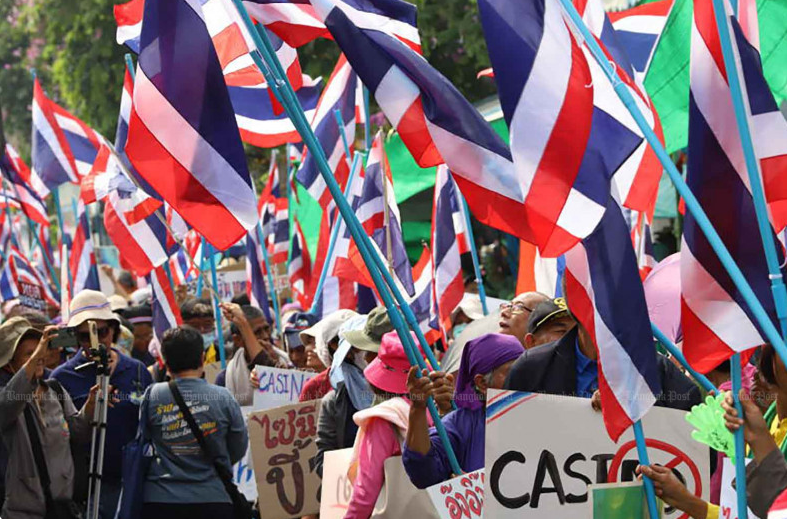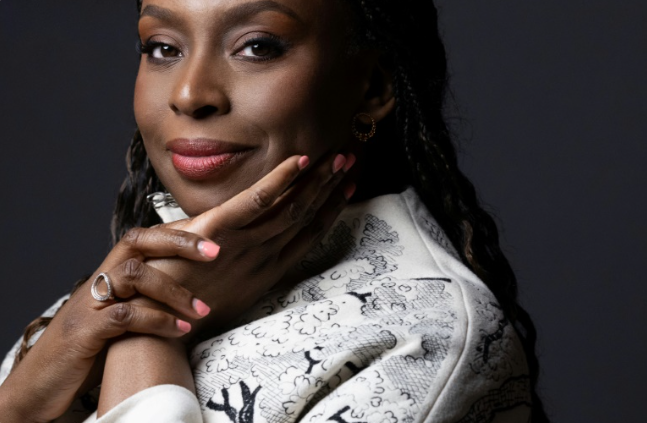Do women get to have dreams of their own, Chimamanda Ngozi Adichie wonders
PARIS — Best-selling Nigerian writer and feminist icon Chimamanda Ngozi Adichie is set for her highly awaited return 12 years after her previous novel with “Dream Count.”
The story follows the twisted fates of four Nigerian women who emigrate to the United States and discover once there that life does not unfold as they had expected.
Its key character is Chiamaka, a writer who rejects tradition and the marriage on which her wealthy family in Nigeria was counting.
Zikora, Chiamaka’s friend, realizes her long-desired dream of a child. But the father fails to marry her and bails out.
Chiamaka’s cousin is a successful businesswoman, but she leaves it all to go to university again.
And then there’s Kadiatou, Chiamaka’s housemaid and confidante, whose one sickening American dream dies when she is sexually assaulted by a guest at a high-end hotel.
“I’m interested in how much of a woman’s dream is her own, and how much is what society has told her her dream should be,” Adichie, whose new title was launched at the Goncourt September Book Fair in Paris, told AFP.
“I believe that women are still very much oppressed around the world. Women are criticized more than men for being selfish, for being ambitious and for being unapologetic.”
The four women think they know what they want from life and love, but as doubts seep in — when they come to fear that they have lost their chance, when they grapple with social pressures and racism — so too do the imperfections in their lives, and in their characters.
Now they support each other anyway.
“Women are taught to see each other as rivals. But then when a woman decides that she is going to love and support another woman, that is a revolutionary act.” It’s a kind of pushing back at a patriarchal society,” Adichie said.
Not ‘a place to be pitied’ –
Adichie’s 2012 TED talk, “We Should All Be Feminists,” moved her into the mainstream.
It garnered millions of views on YouTube and was sampled by Beyonce in the singer’s 2013 hit “Flawless.”
But she dislikes the way her writing is pigeonholed.
“I don’t consider myself a ‘feminist’ writer,” she insisted. “I consider myself a writer. And I’m also a feminist.”
then continued, “The thing about labels is that can be really limiting. “Then we would only look at stories through ideological lenses.”
Adichie has a different notion, that novels should be messy and at times cross opinions and beliefs.
“We’re all just full of contradictions,” she grinned playfully.
Another of her bugbears is the patronising Western stereotype of Africa, the “single story” of a continent afflicted by poverty, conflicts and diseases.
“There’s still that impulse and reflex to see Africa as a space to be pitied,” she said.
“And I think it’s very troubling because you cannot understand a place like Nigeria, for instance, if you only look at it as a place to be pitied.
Nigeria is a leading oil producer, has a vibrant business culture, international pop stars and Nollywood — Africa’s Hollywood.
A way out of grief –
Not that it’s all sunshine and rainbows. Young Nigerians are flying out en masse, fleeing inflation and unemployment in search of a better future overseas.
That, according to Adichie, is the responsibility of the current government, which “is not at all in any way concerned with the lives of ordinary people”.
“I want to sit in judgment of the government, not in judgment of those who have dreams,” she said.
Now 47, Adichie has had her books translated into more than 50 languages and has amassed a string of prestigious literary awards -– including the Orange Prize for “Half of a Yellow Sun” (2006) and the National Book Critics Circle Award for “Americanah” (2013).
But after she was pregnant with her first child, a daughter born in 2016, she was overcome with crippling writer’s block — the nightmare of every wordsmith.
But it was the death of her mother in 2021, just months after the death of her father, that finally broke the stalemate.
From her pain emerged “Dream Count.”
“It wasn’t until I was almost finished that I realised: ‘Oh my God, it’s about my mother!’ “ she said in an interview with Britain’s Guardian newspaper in February.
“I think my mother helped me,” she was quoted as saying by AFP. “And I believe she said, ‘You know, I need to get my daughter writing again so she doesn’t go completely mad with grief.’ ”
She said this book was “very different from anything else I’ve done”.
“This is the first novel that I’ve written since becoming a mother. And this is the first I’ve written as an orphan,” Adichie said.
“It’s made a difference in my writing. Because I feel like when you see the world differently, what you create is different.”










